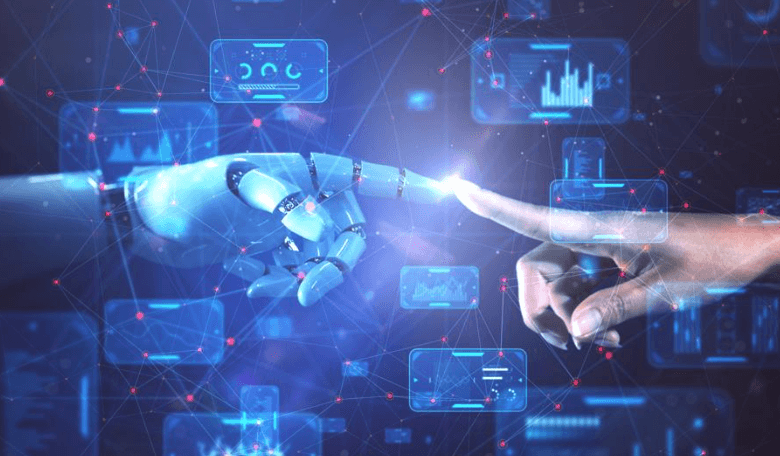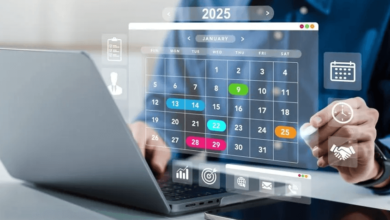Technology in 2025: Innovations Shaping the Future

Technology has become the driving force behind global transformation. From how we communicate to how businesses operate, new innovations are redefining modern life. In 2025, breakthroughs in artificial intelligence (AI), cloud computing, blockchain, cybersecurity, and green technology are leading the way. These trends are not only improving efficiency but also shaping a smarter, safer, and more sustainable world.
This article explores the top technology trends of 2025 and their impact on society and industries.
Artificial Intelligence: Powering Everyday Life
Artificial Intelligence is no longer a futuristic concept. It is already embedded in our daily lives and continues to expand.
- Healthcare: AI systems analyze scans, predict illnesses, and assist in developing personalized treatments.
- Business: Companies use AI for data analytics, customer service chatbots, and fraud detection.
- Personal Use: From smart assistants like Siri to Netflix recommendations, AI makes life easier.
Experts predict that AI will contribute more than $15 trillion to the global economy by 2030, making it one of the most transformative technologies of the decade.
Cloud Computing: The Digital Backbone
Cloud computing remains a pillar of modern business operations in 2025. It allows organizations and individuals to store, access, and manage data seamlessly.
- Scalability: Businesses can scale up or down based on demand.
- Remote Collaboration: Teams across the world can work together in real time.
- Cost-Effectiveness: Companies save on expensive hardware and maintenance.
With the rise of hybrid work, cloud adoption has become more essential than ever for efficiency and productivity.
Internet of Things (IoT): A Connected World
The Internet of Things (IoT) is expanding rapidly, connecting billions of devices worldwide.
- Smart Homes: IoT-enabled devices improve convenience with voice-controlled lighting, heating, and security systems.
- Healthcare: Wearables track heart rate, sleep cycles, and activity to promote healthier living.
- Smart Cities: Governments use IoT to optimize energy grids, traffic management, and waste collection.
By 2030, it is estimated that over 30 billion IoT devices will be in use, making it one of the most impactful tech revolutions.
Cybersecurity: Protecting Digital Assets
As digital dependency increases, so do cyber threats. Cybersecurity in 2025 is more advanced and critical than ever.
- AI-Driven Security: Machine learning tools detect and respond to threats in real time.
- Data Privacy: Encryption and multi-factor authentication protect sensitive information.
- User Awareness: Training individuals to recognize scams reduces risks significantly.
With cybercrime costs projected to reach trillions of dollars annually, cybersecurity investment is a necessity for all sectors.
5G Networks: Faster and Smarter Connectivity
5G technology is more than just high-speed internet; it is enabling entirely new industries.
- High Speed: Supports seamless video streaming and cloud gaming.
- Low Latency: Essential for remote surgeries and autonomous vehicles.
- Industrial Automation: Factories and logistics systems rely on 5G for efficiency.
5G is unlocking innovation in areas like smart cities, connected vehicles, and augmented reality.
Blockchain: Beyond Digital Currency
Blockchain is often associated with cryptocurrency, but its uses go far beyond that.
- Finance: Enables fast, secure, and low-cost transactions.
- Supply Chains: Tracks goods with transparency from origin to consumer.
- Healthcare: Safeguards patient records with decentralized storage.
With the rise of Web3 technologies, blockchain is building trust and security in digital ecosystems.
Green Technology: Innovation with Sustainability
Sustainability is no longer optional—it’s a global priority. Green technology is leading the movement for eco-friendly progress.
- Renewable Energy: Solar, wind, and hydro power are becoming more efficient.
- Electric Vehicles (EVs): Adoption of EVs is reducing global emissions.
- Smart Energy Grids: AI-powered grids optimize energy consumption and reduce waste.
Green technology demonstrates how innovation can protect the environment while supporting growth.
Emerging Technologies to Watch
While current technologies dominate the present, emerging innovations are preparing to reshape the future:
- Quantum Computing: Promises to solve problems traditional computers cannot handle.
- Metaverse: Provides immersive digital spaces for entertainment, education, and work.
- Biotechnology: Advances in genetics and medicine are revolutionizing healthcare.
- Artificial General Intelligence (AGI): The next leap in AI, where machines may think and learn like humans.
These emerging technologies may define the next decade of transformation.
Conclusion
The technology landscape of 2025 is full of opportunities and challenges. From AI and IoT to cloud computing, 5G, and blockchain, innovation is reshaping every sector. At the same time, cybersecurity ensures digital safety, while green technology focuses on sustainability. Emerging fields like quantum computing and biotechnology promise even greater possibilities in the years ahead.
For businesses, adopting these technologies offers a competitive advantage. For individuals, it means smarter living, better healthcare, and safer digital experiences. One truth is clear: technology is not just driving the future—it is the future.




